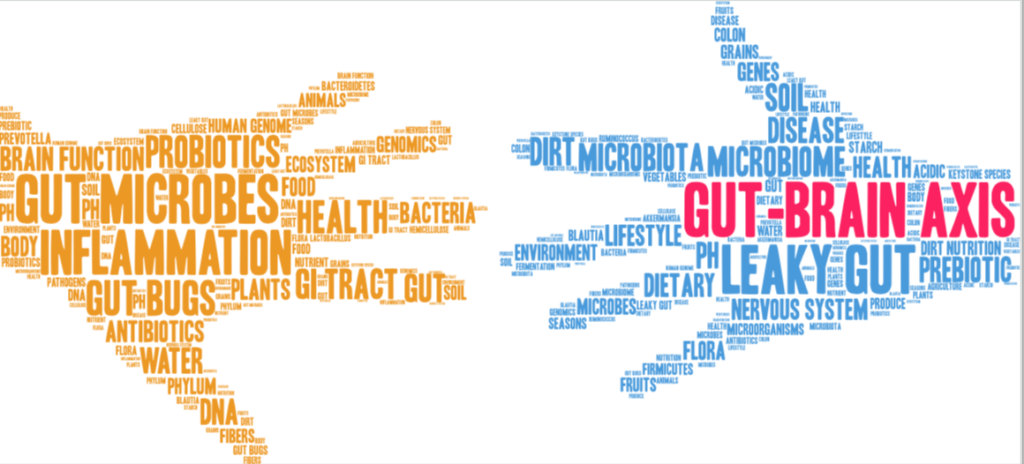
The promise of the “psychobiotic revolution” is that many of the underlying drivers of chronic mental illness can be reversed with relatively simple interventions.
“We cannot change the genes in our cells. But we can change the genes in our microbiota. That can have a positive—or a negative—health benefit,” says Ted Dinan, MD, PhD, a pioneer in the field of microbiome research.
The first step is to address factors that may be impairing the optimal function of the gut- -brain-microbiome axis. Consider the following:
Intestinal Permeability: The gut microbiome heavily influences gut wall permeability. We know harmful bacteria can over-colonize the colon and increase permeability, which leads to many negative consequences. The strongest example is the over-colonization of the intestine by clostridium difficile following antibiotic therapy, but there are many others. Microbiome imbalances lead to epithelial and mucosal damage, allowing potentially harmful, inflammatory molecules to enter the blood.
Beneficial gut bacteria, on the other hand, decrease gut permeability by upregulating production of trans-membrane proteins that preserve the tight junctions between epithelial cells.
The brain and nervous system influence intestinal permeability. For example, signals from the brain during stress can increase permeability. The CNS also influences the microbiota composition (which in turn influences intestinal permeability) directly via immune and hormonal responses.
Antibiotics: These drugs are sometimes necessary, but we need to use them much more judiciously. In addition to C. difficile, many other unfriendly bugs can populate the intestines following repeated courses of antibiotics that wipe out their competition. Even with optimal care and diligent probiotic use, it can take up to three full months for the microbiome to stabilize after a course of antibiotics.
Other Medications: Beyond antibiotics, many other drugs can be problematic for the microbiome. According to Dr. Dinan, 75% of commonly prescribed drugs in the US and Europe can impact the microbiota, “and most not in a positive way.” H2 blockers and proton pump inhibitors are common culprits, but there are many.
Diet: The gut microbiome is healthier when people eat a wide variety of whole foods (especially polyphenol-rich vegetables and fruits, nuts, legumes, and whole grains). It suffers when fed a steady diet of fast food, processed foods and refined carbs.
Diets need to be individualized but in general it’s a good idea to increase intake of polyunsaturated fatty acids, particularly EPA and DHA as they’re both important structural components in the brain. Dinan pointed out that bifidobacterial counts also rise significantly when people supplement with these omega-3s.
Dietary fiber is also important, particularly inulin, which can be obtained from leeks, jicama, onions, potatoes, wheat (for those who do not have gluten sensitivities), and especially from Jerusalem artichokes (aka sunchokes). Naturally fermented foods—unpasteurized sauerkraut, kimchi, and the like—are also good additions to the diet.
Curcumin: “I don’t believe it enters the brain in any sizeable quantities,” says Dr. Dinan of this popular spice. “But it has big effects on the gut microbiome, which could very well account for the anti-depressant and pro-cognitive benefits observed in a number of well- designed curcumin studies.”
Exercise: Gut microflora are healthier in people that engage in regular aerobic exercise.
Psychobiotic Supplementation: Clearly, supplementation with psychobiotics will play an important role in optimizing the gut-brain relationship. Dr. Dinan says it is best to use multi-strain products containing at least nine billion colony forming units. Products containing several different organisms will help promote microbial diversity.
“In general,” Dr. Dinan says, “psychobiotics are tourist in our intestines. They can be exceedingly active, producing bioactive molecules, and stimulating our immune systems. But they do not colonize the intestine. They have to be taken on an ongoing basis to continue to exert effects.”







